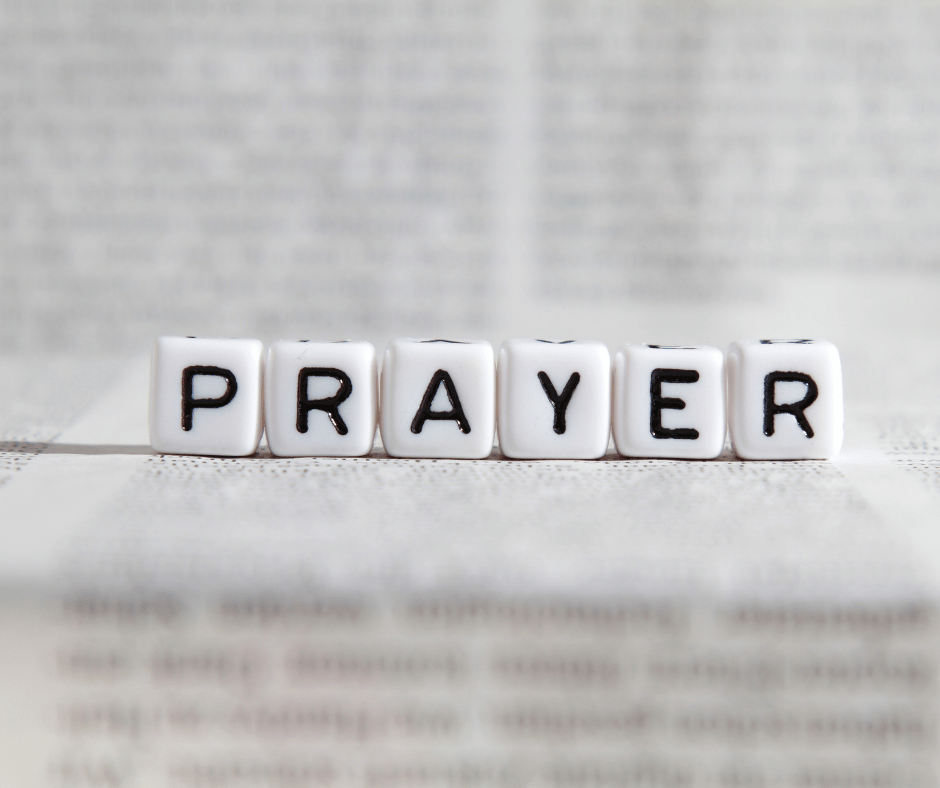Prayer is the lifeblood of a believer’s relationship with God. In our fast-paced world, it’s easy to let our prayer lives become stagnant or routine. This year, let’s commit to cultivating a deeper, more meaningful prayer life that transforms our walk with Christ. Here’s an eye-opening statistic: A recent study found that 68% of Christians struggle to maintain a consistent prayer routine. If you’re part of that majority, don’t worry – you’re not alone! This guide will equip you with practical strategies to revitalize your prayer life and draw closer to God.
1. Establish a Sacred Prayer Time and Space

One of the most effective ways to deepen your prayer life is by establishing a consistent, sacred time and space for prayer. It may sound simple, but this can truly transform how you connect with God. I remember struggling with consistency in my own prayer life until I made this small change—setting aside a specific time each day just for prayer. It was life-changing!
Start by choosing a time that works best for you, whether it’s early in the morning before the hustle of the day begins or late at night when the world quiets down. Once you’ve set your time, guard it fiercely. Treat it as a non-negotiable meeting with God.
In addition to time, creating a dedicated space can help foster a sense of reverence and focus. A prayer corner in your home can serve as a visual reminder to pause and spend time with God. You don’t need a fancy setup; it could be as simple as a cozy chair, a Bible, and a candle. Removing distractions is key—silencing your phone, finding a quiet spot, and creating an atmosphere that invites peace.
Visual cues like candles, a cross, or even a prayer journal can help set the tone and remind you that this is holy ground. I love using a Bible and a journal during my prayer time—it helps me to stay focused and present. Creating this sacred environment makes it easier to quiet your mind and truly meet with God.
2. Incorporate Scripture into Your Prayers

Scripture is one of the most powerful tools you can use to enrich your prayer life. I’ve found that praying through Bible passages brings a depth and richness to my prayers that I never experienced before. It’s like using God’s own words to speak back to Him, aligning my heart with His will.
Start by selecting a passage that resonates with you. You could choose a Psalm, a story from the Gospels, or any Scripture that speaks to your current situation. As you pray through the passage, meditate on each verse, letting the words soak into your heart. You can also memorize key verses that you can recall during prayer. I often return to verses like Psalm 23 or Philippians 4:6 when I need reassurance or guidance.
The Psalms, in particular, are an incredible guide for prayer. Whether you’re expressing joy, sorrow, or gratitude, there’s a Psalm for every emotion. By praying these timeless words, you’re joining in a tradition of believers who have used Scripture as a foundation for their prayers for thousands of years.
Another practice I’ve embraced is applying biblical promises to my specific prayer requests. For example, when I’m praying for guidance, I remind myself of James 1:5: “If any of you lacks wisdom, let him ask of God, who gives to all generously.” It’s a powerful way to strengthen your prayers and align them with God’s truth.
3. Experiment with Different Prayer Methods

Sometimes, a fresh approach to prayer can be the key to reigniting your spiritual life. Over the years, I’ve found that experimenting with different prayer methods has deepened my relationship with God in unexpected ways. One method I particularly love is the ACTS model—Adoration, Confession, Thanksgiving, and Supplication. This simple framework has guided many of my prayer times when I wasn’t sure what to pray for.
- Adoration: Start by praising God for who He is. Reflect on His greatness, mercy, and love. This helps shift your focus from your circumstances to the majesty of God.
- Confession: Take a moment to acknowledge your sins and shortcomings. Confession is about humbling ourselves and seeking God’s forgiveness.
- Thanksgiving: Offer gratitude for the blessings in your life, both big and small. I’ve found that when I start thanking God, it changes my perspective, helping me see His goodness in all things.
- Supplication: Finally, bring your requests before God, whether it’s for yourself, your loved ones, or the world around you. God wants us to bring our needs to Him.
Another method to explore is contemplative prayer, where you sit in silence, listening for God’s voice and resting in His presence. It’s different from traditional prayers where you do most of the talking. Instead, it’s about creating space to be still before God. At first, it might feel uncomfortable, but as you practice, it becomes a deeply peaceful way to connect with Him.
Prayer journaling is another fantastic way to keep track of your prayers and how God answers them. I started journaling years ago, and it’s amazing to look back and see how God has been faithful through different seasons of my life. You can write out your prayers, reflect on Bible verses, or jot down any thoughts or impressions you sense during prayer.
Lastly, don’t forget about the power of intercessory prayer. This is when you pray on behalf of others—whether it’s family, friends, or even global issues. It’s a beautiful way to lift up those around you and invite God’s intervention in their lives. Intercessory prayer not only impacts others, but it also shifts your focus outward, aligning your heart with God’s compassion for the world.
4. Cultivate a Spirit of Continuous Prayer

Prayer doesn’t have to be limited to specific times or places. In fact, one of the most transformative practices I’ve learned is cultivating a spirit of continuous prayer—staying connected with God throughout the day. This has helped me experience God’s presence, even in the midst of life’s busyness.
One way to do this is through “breath prayers”—short, simple prayers you can repeat silently as you go about your day. It could be something like, “Lord, have mercy,” or “Thank you, Jesus.” These prayers are easy to say in moments when you need a quick reminder of God’s presence.
I also like to set reminders on my phone or write sticky notes around the house that prompt me to pause and pray. These gentle reminders help me refocus my thoughts on God, even during the busiest of days. You’d be surprised how much peace and clarity can come from a two-minute prayer break in the middle of your schedule!
Another tip is to turn daily tasks into opportunities for prayer. Whether you’re doing the dishes, driving, or folding laundry, these mundane moments can become sacred when you use them as times to talk with God. Sometimes, while cooking or walking, I’ll offer prayers of thanksgiving or ask God for guidance on a decision. This habit has helped me see that every moment of the day can be an opportunity to commune with God.
Lastly, cultivate a habit of gratitude and praise in the small, everyday moments. Whether it’s thanking God for the sunrise, a kind word from a friend, or a peaceful moment, this practice can shift your heart towards joy and contentment. I’ve noticed that when I actively choose gratitude, it transforms my outlook and helps me remain centered in God’s love.
5. Deepen Your Prayer Life Through Community

Prayer is a powerful personal practice, but it can also be greatly enriched through community. I’ve learned that joining others in prayer has deepened my connection with God and strengthened my faith in ways I couldn’t have imagined. Whether it’s with a group of close friends or your church community, praying together is an incredible way to experience the presence of God in a collective setting.
One of the best decisions I made was to join a prayer group. If there isn’t one near you, consider starting a small prayer circle with a few friends. Praying together allows you to lift each other up, share burdens, and witness God moving in each other’s lives. There’s something so powerful about hearing someone else pray for you—it reminds you that you’re not walking this journey alone.
Participating in corporate prayer at church is another way to tap into the strength of community prayer. Whether it’s during a service or a special prayer meeting, gathering with fellow believers to call upon God brings a sense of unity and shared purpose. In those moments, you realize that you’re part of something much bigger than yourself.
If you find it difficult to stay consistent in your prayer life, consider finding an accountability partner. I’ve done this in the past, and it helped me stay committed to regular prayer. Knowing someone else is walking with you in your prayer journey can be a great source of encouragement and motivation.
Lastly, attending prayer retreats or workshops can provide a refreshing and focused time to deepen your prayer life. These events offer dedicated time to unplug from the world, focus on God, and learn new ways to pray. I attended a retreat once, and it completely rejuvenated my spirit and reignited my passion for prayer.
6. Embrace Silence and Listening in Prayer

In our noisy, fast-paced world, it can be challenging to find time for silence. But I’ve discovered that incorporating periods of silence and listening into my prayer time has helped me tune in to God’s voice in ways that busier prayers didn’t allow. It’s in the quiet moments that we often sense God’s presence most clearly.
Start by setting aside a few minutes of silence at the beginning or end of your prayer time. Listening for God’s voice through meditation is different from the typical “asking” in prayer. It’s about being still and receptive to what He might be saying. Sometimes, God speaks through a sense of peace, a scripture that comes to mind, or even a new perspective on a situation.
It’s helpful to journal any insights or impressions you receive during these times. I often find that writing down what I sense from God helps me process and remember His guidance. It may not always be a clear answer, but over time, you’ll notice how God is leading you.
Above all, be open to God’s guidance and direction. Sometimes we come to prayer with a specific agenda, but God may want to lead us somewhere unexpected. Embracing silence and listening has taught me to be more flexible in my prayers, trusting that God knows what’s best for me, even if it’s not what I initially asked for.
7. Overcome Common Prayer Obstacles

We all face obstacles in our prayer life at one point or another. Whether it’s feelings of unworthiness, distractions, or just not “feeling like it,” these challenges can make it hard to stay committed. But the good news is that overcoming these obstacles is possible with a bit of intentionality and grace.
One of the most common obstacles is feelings of unworthiness or guilt. I’ve been there—feeling like I wasn’t “good enough” to come before God. But Scripture reminds us that God’s love is unconditional, and we are always welcome in His presence, no matter how we feel. When those feelings creep in, remind yourself that Jesus paid the price so that we can confidently approach God.
Distractions are another big challenge, especially in today’s world. Whether it’s the buzz of a phone or a wandering mind, distractions can pull you away from focusing on prayer. One strategy I’ve found helpful is keeping a notebook nearby. If a distracting thought pops up, I write it down to address later so I can return to prayer without getting sidetracked.
Sometimes, the hardest part is simply praying when you don’t feel like it. We all have seasons where prayer feels dry or forced. During those times, I’ve learned that it’s okay to be honest with God about how I’m feeling. Prayer doesn’t have to be perfect. What matters is showing up and trusting that God is with you, even when you don’t feel His presence.
Finally, learning to persevere through seasons of spiritual dryness is crucial. These seasons can feel lonely and frustrating, but they’re often where God is doing some of His deepest work in us. Keep pressing in, even when it feels like nothing is happening. God is faithful, and He will meet you in His timing.
Cultivating a deeper prayer life is a journey that requires intentionality and persistence. By implementing these strategies, you’ll discover a richer, more fulfilling connection with God through prayer. Remember, the goal isn’t perfection but progress. As you commit to deepening your prayer life in 2024, you’ll experience the transformative power of intimate communion with your Creator. Start small, be consistent, and watch as God works in and through your prayers!
Additional Resources for Strengthening Your Prayer Life
If you’re looking to dive deeper into prayer practices and find more ways to grow spiritually, there are many excellent resources available online. One helpful guide that offers practical tips for building a consistent prayer routine can be found at Bible Study Tools. They provide an in-depth look at how prayer can transform your daily walk with God. For more information, visit the full guide here: https://www.biblestudytools.com/bible-study/prayer/10-tips-to-improve-your-prayer-life.html.
FAQ: Cultivating a Deeper Prayer Life
1. How do I stay consistent in my prayer life?
Staying consistent starts with intentionality. Set aside a specific time each day for prayer, just like any other important appointment. Create a sacred space in your home, free from distractions, where you can focus on connecting with God. You can also find an accountability partner or join a prayer group to help keep you motivated and committed.
2. What is the ACTS prayer method?
The ACTS method is a simple framework for structuring your prayers:
- Adoration: Begin by praising God for who He is.
- Confession: Acknowledge your sins and seek forgiveness.
- Thanksgiving: Offer gratitude for God’s blessings.
- Supplication: Bring your needs and the needs of others before God. This method helps guide your prayers and keeps your focus on God’s character and faithfulness.
3. What are some ways to pray without distractions?
Distractions are common in prayer, but there are ways to manage them:
- Create a quiet, dedicated space for prayer.
- Silence your phone and remove anything that may pull your attention away.
- Use a prayer journal to write down distracting thoughts so you can revisit them later.
- Set a timer for your prayer time, giving yourself freedom from checking the clock.
4. How can I incorporate scripture into my prayers?
Incorporating scripture is a powerful way to deepen your prayers. You can:
- Pray through Bible passages, such as the Psalms.
- Memorize key verses to recall during prayer.
- Use biblical promises and apply them to your current situations. Scripture-based prayer aligns your heart with God’s word and strengthens your connection to Him.
5. What are “breath prayers”?
Breath prayers are short, simple prayers that you can say silently throughout the day. They are designed to keep you connected with God, even in busy moments. Examples include, “Lord, have mercy,” or “Jesus, I trust in you.” Breath prayers are perfect for cultivating a spirit of continuous prayer.
6. What should I do if I don’t feel like praying?
It’s normal to go through seasons where you don’t feel like praying. During these times, it’s important to show up in prayer, even if it feels dry or forced. Be honest with God about how you’re feeling—He understands. Focus on short, simple prayers, or try praying through scripture. Persevere through these seasons, trusting that God is working in your heart even when you don’t feel it.
7. How do I listen for God’s voice in prayer?
Listening in prayer requires stillness and openness. Set aside time for silence, quiet your thoughts, and ask God to speak to you. Meditate on scripture or simply sit in God’s presence, waiting for any impressions or thoughts that come to mind. Journaling can help you process what God may be saying.
8. What if I feel unworthy to pray?
Feelings of unworthiness can be a significant obstacle, but remember that God’s love and grace are available to you at all times. No matter how you feel, God invites you to come to Him just as you are. Jesus’ sacrifice has made a way for you to confidently approach God in prayer, knowing you are forgiven and loved.
9. How can I involve others in my prayer life?
Involving others in your prayer life can help you grow and stay accountable. Consider joining a prayer group, participating in corporate prayer at your church, or finding a prayer partner. Attending prayer retreats or workshops is another excellent way to learn from others and deepen your prayer practice.
10. How do I overcome spiritual dryness in prayer?
Spiritual dryness is a normal part of the Christian journey. During these times, keep praying, even when it feels difficult. Lean on scripture, be honest with God about your struggles, and remain faithful in your prayer routine. God is often working behind the scenes during these dry seasons, growing your faith and perseverance.



